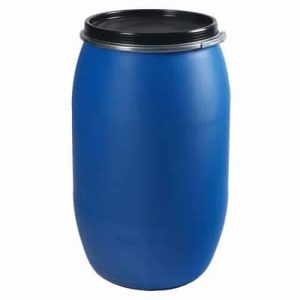Product Details
EDTA 2NA/4NA 25kg Bag
Ethylene Diamine Tetraacetic Acid (EDTA) disodium salt (EDTA 2NA) and tetrasodium salt (EDTA 4NA) stand as essential chelating agents with diverse applications across various industries. Renowned for their ability to bind metal ions and improve product stability, EDTA 2NA/4NA play pivotal roles in food and beverage, pharmaceuticals, personal care products, water treatment, and industrial processes. Let’s explore the intricacies of EDTA 2NA/4NA, unraveling their benefits and the myriad ways they contribute to different sectors.
Description
EDTA 2NA/4NA: Unlocking Their Versatile Benefits
Ethylene Diamine Tetraacetic Acid (EDTA) disodium salt (EDTA 2NA) and tetrasodium salt (EDTA 4NA) stand as essential chelating agents with diverse applications across various industries. Renowned for their ability to bind metal ions and improve product stability, EDTA 2NA/4NA play pivotal roles in food and beverage, pharmaceuticals, personal care products, water treatment, and industrial processes. Let’s explore the intricacies of EDTA 2NA/4NA, unraveling their benefits and the myriad ways they contribute to different sectors.
Chemical Composition and Properties:
EDTA 2NA and EDTA 4NA are water-soluble organic compounds derived from ethylenediamine and acetic acid. They belong to the family of chelating agents, characterized by their ability to form stable complexes with metal ions. EDTA 2NA contains two sodium ions, while EDTA 4NA contains four sodium ions, making them highly soluble and versatile in aqueous solutions. These salts are typically white, crystalline powders with high chelating capacity and stability over a wide range of pH.
Applications and Benefits:
- Food and Beverage Industry: EDTA 2NA/4NA find extensive use in the food and beverage industry as chelating agents and preservatives. They help prevent oxidative degradation and color changes in food products by chelating metal ions that catalyze oxidation reactions. EDTA 2NA/4NA also inhibit the growth of spoilage microorganisms and improve the shelf life of processed foods, beverages, and canned products.
- Pharmaceutical Formulations: In pharmaceutical formulations, EDTA 2NA/4NA serve as complexing agents and stabilizers for medications and healthcare products. They enhance the stability and bioavailability of active pharmaceutical ingredients (APIs), particularly in formulations susceptible to metal-catalyzed degradation reactions. EDTA 2NA/4NA are utilized in oral medications, parenteral solutions, ophthalmic preparations, and topical formulations.
- Personal Care Products: EDTA 2NA/4NA are incorporated into personal care products such as shampoos, soaps, cosmetics, and skincare formulations. They act as chelating agents and stabilizers, preventing metal ion contamination and product degradation. EDTA 2NA/4NA enhance the stability of cosmetic formulations, preventing color changes, rancidity, and loss of active ingredients due to metal-induced oxidation.
- Water Treatment and Cleaning Agents: In water treatment applications, EDTA 2NA/4NA are utilized as complexing agents for metal ion removal and water softening. They sequester calcium, magnesium, and heavy metal ions present in hard water, preventing scale formation and improving water quality. EDTA 2NA/4NA-based cleaning agents and detergents enhance soil removal, prevent fabric yellowing, and improve the efficiency of industrial cleaning processes.
- Industrial Processes and Metal Finishing: EDTA 2NA/4NA play crucial roles in industrial processes such as metal plating, electroplating, and metal finishing. They serve as complexing agents and stabilizers in plating baths and etching solutions, ensuring uniform deposition of metal coatings and preventing metal corrosion. EDTA 2NA/4NA-based electrolytes improve plating efficiency, adhesion, and surface finish in electrochemical processes.
- Analytical Chemistry and Laboratory Applications: In analytical chemistry and laboratory applications, EDTA 2NA/4NA are employed as chelating agents for metal ion analysis, titrations, and complexometric determinations. They facilitate the quantification and separation of metal ions in complex matrices, allowing for accurate and reliable analytical measurements. EDTA 2NA/4NA-based reagents and solutions are widely used in environmental testing, pharmaceutical analysis, and quality control laboratories.
Conclusion:
In conclusion, EDTA 2NA/4NA emerge as versatile and indispensable chelating agents with diverse applications and benefits across various industries. From their role as preservatives and stabilizers in food and pharmaceuticals to their contributions in water treatment, personal care products, and industrial processes, EDTA 2NA/4NA play vital roles in enhancing product quality, performance, and sustainability. As industries continue to innovate and evolve, the importance of EDTA 2NA/4NA in optimizing formulations and addressing complex challenges is expected to grow, further solidifying their status as valuable and essential chemical compounds in modern-day applications.





Reviews
There are no reviews yet.